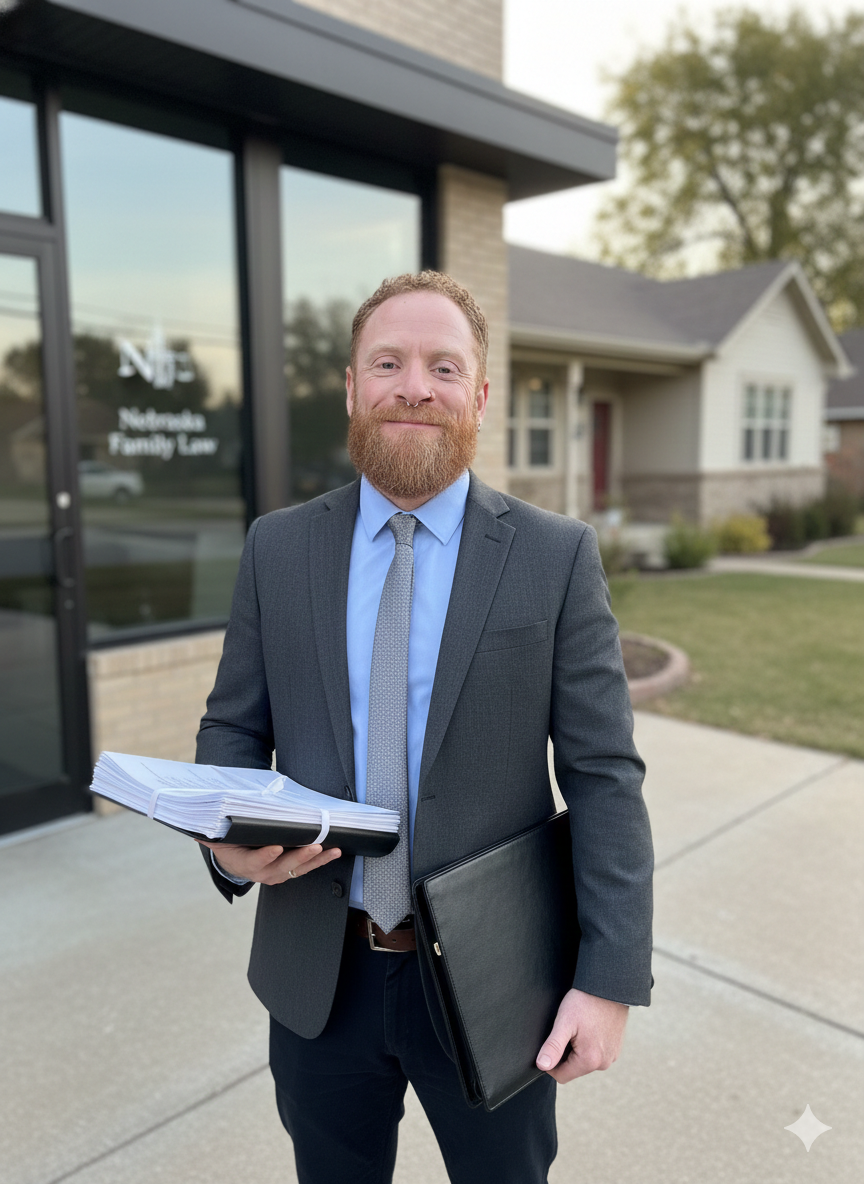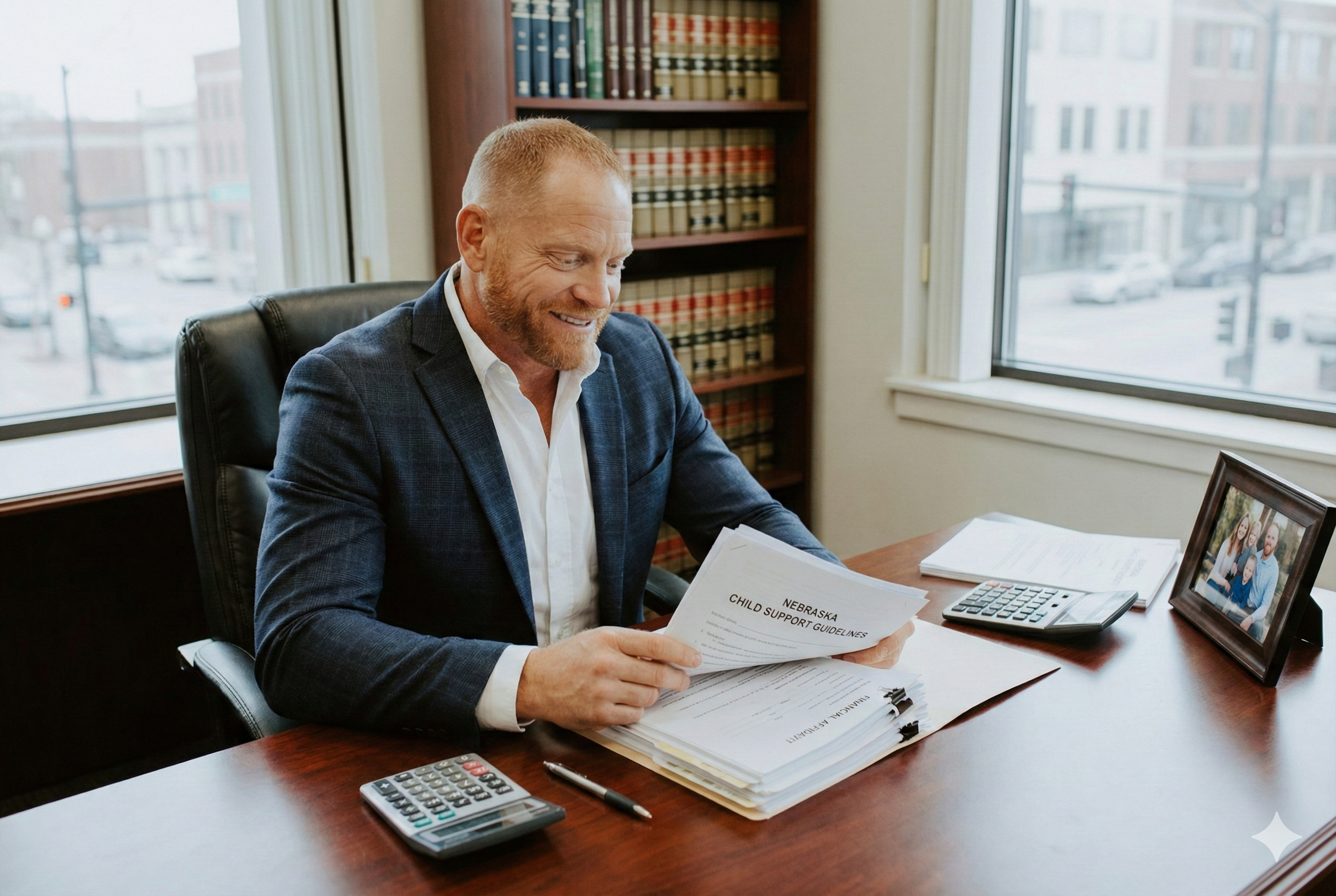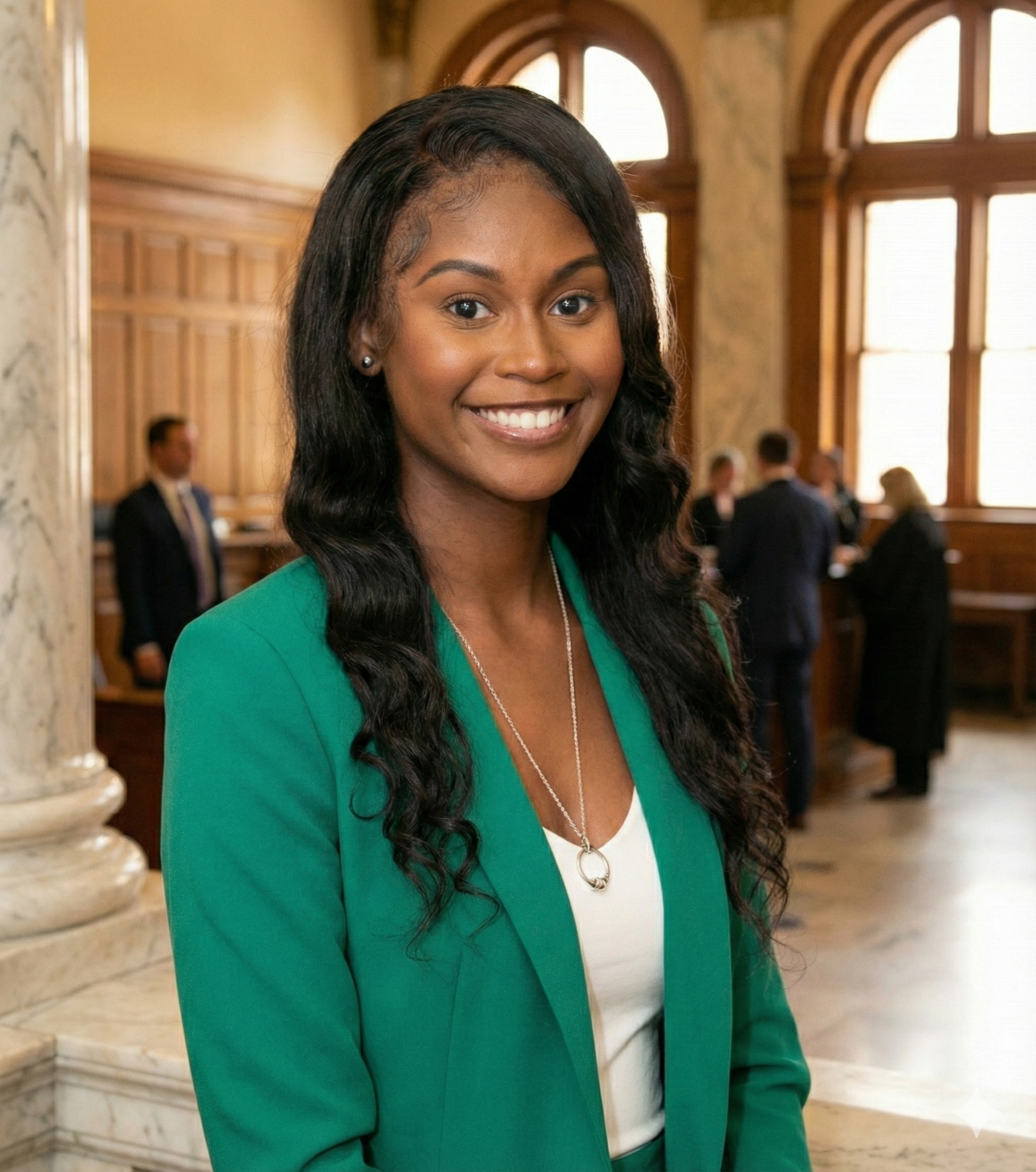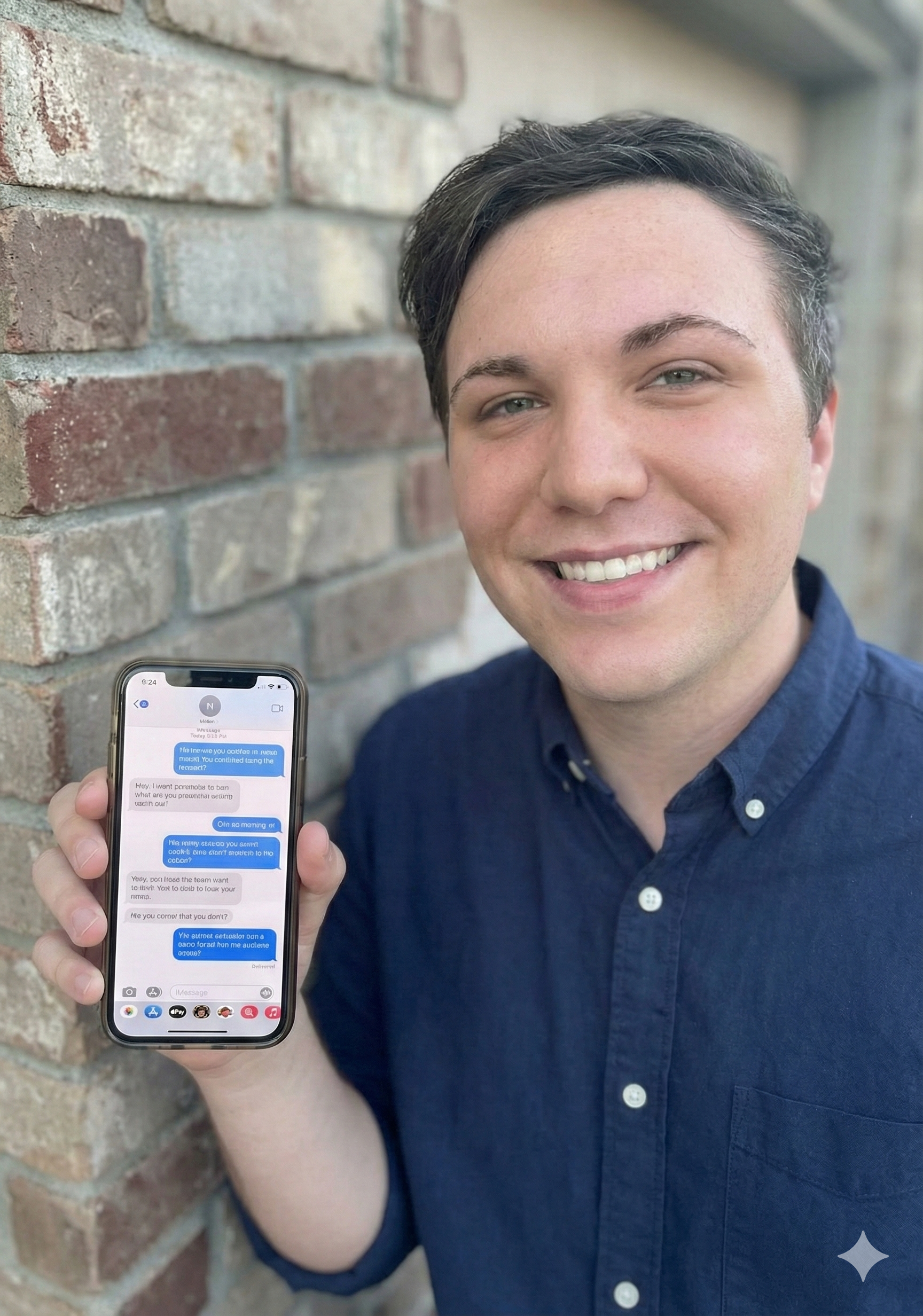When you buy a home with premarital money, is it still yours in a Nebraska divorce?
If you sold a home you owned before marriage and used that money as the down payment on the house you shared with your spouse, you’re probably asking a simple question with a complicated answer: does that contribution stay yours in a Nebraska divorce, or does it get split? Nebraska divides property “equitably,” meaning fairly, and the outcome often turns on two things most people don’t think about until it’s too late: whether you can trace the down payment back to a nonmarital source, and how Nebraska’s source-of-funds rules treat mortgage principal paydown during the marriage. In this post, I break down the framework Nebraska courts use, explain what evidence actually matters, and walk through a recent Court of Appeals decision, Patach v. Patach (2026), to show how an $80,000 premarital down payment was treated and why that classification changed the equalization analysis.
Should You Leave an Unequal Inheritance to Your Children (And How Do You Keep the Peace)?
Unequal inheritance is legal in Nebraska, but it’s also one of the fastest ways to trigger a will contest if your family feels blindsided. This article explains when unequal shares can make practical sense, the two Nebraska “gotchas” that can override DIY plans (the elective share and pretermitted child rules), and how to reduce the risk of fights over capacity or undue influence. If you want your plan to hold up—and keep the peace—this is the roadmap.
Is modern family law shifting from conflict to empowerment?
Family law is still emotional and high-stakes, but in 2026 the best outcomes usually come from strategy, not scorched-earth conflict. This post explains how modern Nebraska family law is shifting toward early resolution and durable planning through tools like Parenting Act mediation, required parenting education, and collaborative divorce. You’ll also learn when settlement is not appropriate, how litigation can protect safety and financial fairness, and how technology and responsible AI use can make the process more efficient without replacing real legal judgment.
Why do celebrity divorces look instant while Nebraska divorces take so long?
Celebrity divorces look instant because the hard work often happens quietly before anyone files, but a Nebraska divorce runs on a public court timeline that cannot be rushed. Nebraska law generally requires at least 60 days after service is perfected before the court can hear the case, and real-world issues like parenting plans, financial disclosures, and scheduling often add more time. This post breaks down what actually slows divorces down in Lincoln and Omaha, how uncontested cases move faster, and the “finality trap” many blogs miss: Nebraska’s six-month waiting period to remarry after a divorce decree is entered.
Do I have to mediate in a Nebraska custody case, and what is Parenting Act mediation?
If you’re in a Nebraska custody or parenting time case, you’ve probably heard that “mediation is required” and wondered what that actually means. In most modern parenting cases, if you and the other parent don’t submit an agreed parenting plan by the court’s deadline, the judge will typically order mediation or a specialized alternative dispute resolution process. This post explains the Parenting Act rule in plain English, what an approved Parenting Act Mediator does, and what you can expect from the process so you can walk in prepared and make decisions that actually work in real life.If you’re in a Nebraska custody or parenting time case, you’ve probably heard that “mediation is required” and wondered what that actually means. In most modern parenting cases, if you and the other parent don’t submit an agreed parenting plan by the court’s deadline, the judge will typically order mediation or a specialized alternative dispute resolution process. This post explains the Parenting Act rule in plain English, what an approved Parenting Act Mediator does, and what you can expect from the process so you can walk in prepared and make decisions that actually work in real life.
What Do Parents Need to Know About Child Support in Nebraska?
Nebraska child support is calculated under statewide Guidelines using both parents’ incomes, allowed deductions, and the parenting-time schedule. Two Nebraska-specific rules trip people up the most: support often runs until age 19 (not 18), and modifications are math-driven, with a rebuttable presumption of a “material change” only when a new calculation differs by at least 10% and not less than $25, tied to a change that has lasted at least three months and is expected to last at least six more. If you’re dealing with 50/50 custody, summer parenting-time blocks, or a job change, the details of the worksheet and the wording of your court order matter more than most parents realize.
Dating After Divorce With Kids in Nebraska: How Do You Protect Your Child and Your Custody Case?
Dating after divorce is not automatically a problem for your kids or your custody case. In Nebraska, what matters is stability. Under the Nebraska Parenting Act, courts care far more about the impact a new relationship has on a child’s safety, routines, and emotional well-being than the fact that a parent is dating. This article walks through practical, kid-first pacing, how to handle introductions, and the real situations where dating can become custody evidence, so you can move forward without accidentally creating stress for your child or conflict with your co-parent.
What Is “Future-Focused” Family Law in Nebraska, and Is It the Right Approach for Your Divorce or Custody Case?
Future-focused family law is a planning-first way to handle divorce and custody in Nebraska. Instead of spending your time relitigating the past, the goal is to build an outcome you can actually live with after the decree is signed: a workable parenting plan, clear financial boundaries, and terms that reduce the odds you’ll be back in court a year from now. In many Nebraska custody cases, the system itself pushes parents toward mediation or specialized ADR if a stipulated parenting plan isn’t filed on time, so the smartest strategy is often to prepare early, negotiate from a position of strength, and draft agreements that hold up in real life. If the other party is high-conflict, dishonest, or there are safety concerns, “future-focused” doesn’t mean rolling over. It means building the right structure, including strong temporary orders and enforceable boundaries, so you can protect your kids, your finances, and your peace of mind.
If Cinderella Happened Today, What Would Happen to Her Inheritance Under Nebraska Law?
In Nebraska blended families, “good intentions” are not a legal plan. If you die without a will or trust, stepchildren may not inherit at all, while a surviving spouse can have strong statutory rights that reshape who receives what. This Cinderella-inspired guide explains how Nebraska intestacy, the elective share, and key spouse allowances can affect second marriages—and how a well-built trust-based plan can protect your kids without setting your spouse up to fail.
Can a Screenshot From Social Media Really Win a Custody Case in Nebraska?
Nebraska custody cases are decided on the child’s best interests, not a single viral “gotcha” moment. A screenshot from Facebook, TikTok, or Instagram can matter, but only if it’s relevant, properly authenticated, and part of a bigger pattern that affects the child’s safety, stability, or a parent’s credibility. This article explains how Nebraska judges actually weigh social media evidence, why screenshots often get excluded or downplayed, and how to preserve online content the right way without letting it backfire on you.
Can Tyra Sanchez really sue RuPaul and Michelle Visage for defamation?
Tyra Sanchez (James Ross) says he plans to sue RuPaul, Michelle Visage, and World of Wonder, but defamation cases like this are notoriously hard to win. The biggest issue is that Ross is likely a public figure, which means he would have to prove “actual malice,” not just that the comments were unfair or damaging. On top of that, much of the Drag Race discourse people point to (“she didn’t deserve to win”) is usually protected opinion, not a provably false statement of fact. And if a lawsuit is filed in California, strong anti-SLAPP laws can lead to early dismissal and even force a plaintiff to pay the other side’s attorney fees. This post breaks down what defamation actually requires, why emotional distress claims face major First Amendment limits, and what kind of evidence matters if someone is claiming reputational harm or career sabotage.
How Do Parenting Plans Apply to 18-Year-Olds When Nebraska’s Age of Majority Is 19?
Nebraska is one of the few states where the age of majority is 19, not 18. That one-year difference catches a lot of parents off guard, especially when an 18-year-old is working, driving, and acting like an adult, but the court order is still legally in place. In this post, I explain how Nebraska parenting plans and custody schedules typically continue through age 19, why child support usually does not end at graduation, and why termination is not always “automatic” in the state’s payment system unless the right paperwork is filed. I also cover the practical gray area created by FERPA and HIPAA at 18, and what parents can do to reduce conflict and handle the transition year the right way.
Can Senator Cavanaugh Actually Face Criminal Charges for Removing Capitol Displays in Nebraska?
A Nebraska state senator is under investigation after removing PragerU-related displays from the Capitol. This post explains what actually matters under Nebraska law: the legal definition of “intent to deprive” for theft, what criminal mischief requires (including endangerment and proof of loss), and why “possible charges” are not the same thing as “provable charges.”
What financial documents do you need for a Nebraska divorce?
If you’re getting divorced in Nebraska, your financial paperwork is not busywork, it’s the foundation of the entire case. Property division, child support, and alimony all depend on accurate financial disclosures, and most cases involving children require the Financial Affidavit for Child Support with documents that back up what you list. This guide walks you through the key records Nebraska courts typically expect, explains how the 30-day discovery timeline can affect your case, and gives you a simple system to organize everything so your attorney can use it fast.
Divorcing in Nebraska With a Low-Rate Mortgage: What Are Your Options If You Don’t Want to Sell?
Divorcing in Nebraska with a low-rate mortgage can turn the family home into the most dangerous financial issue in your case. Selling may feel reckless. Refinancing into today’s rates may be impossible. And leaving your name on a loan you don’t control can quietly destroy your credit. This guide explains the real options Nebraska courts allow—from mortgage assumptions to delayed sales—and why a divorce decree alone does not protect you from the bank. If you want to keep your footing while untangling your finances, this is where to start.
What Is an Estate Plan, and Why Does Every Adult Need One?
Estate planning is about more than passing on assets—it’s about protecting your family and your voice. At Zachary W. Anderson Law, we help individuals and families in Lincoln and across Nebraska create clear, legally sound estate plans that work when life takes an unexpected turn. From Wills and Trusts to Powers of Attorney and Living Wills, we focus on giving you control, reducing court involvement, and making sure the people you trust can act for you when it matters most.
How Do You Stay Grounded When Divorcing a High-Conflict Ex in Nebraska?
High-conflict divorce isn’t about who argues more — it’s about how conflict is handled when emotions run high and children are involved. In Nebraska custody and divorce cases, staying grounded protects your credibility and can directly affect how a judge views your case. When conflict becomes entrenched, courts may rely on tools like Specialized Alternative Dispute Resolution (SADR) under the Nebraska Parenting Act to restore structure and accountability. Calm, strategic responses aren’t just good advice — they’re often the difference between chaos and resolution.
High-Conflict Co-Parenting & Custody in Nebraska: How Does It Really Affect Your Case and Your Kids?
High-conflict custody cases in Nebraska are rarely decided by a single argument or incident. Courts look at patterns—how parents communicate, regulate emotions, and prioritize their child’s well-being over ongoing conflict. As a Lincoln family law attorney and Guardian ad Litem, I see how unmanaged conflict can quietly damage an otherwise strong case and place unnecessary stress on children. This article explains how high-conflict co-parenting affects custody decisions under the Nebraska Parenting Act, why your texts and emails matter more than you think, and how practical tools like BIFF communication and mental health support can protect both your credibility and your child’s long-term stability.
How Did a Nebraska Guardian Accused of Abuse Keep Dozens of Wards—and What Does That Reveal About Our Guardianship System?
When Nebraska families place a loved one under guardianship, they expect protection—not exploitation. But recent investigative reporting revealed that a private guardian accused of abusing a vulnerable adult remained court-appointed for dozens of others across the state. That case exposed a critical gap in Nebraska’s guardianship system: private guardians are not subject to the same caseload limits or oversight as the Office of Public Guardian.
Are Handwritten “Napkin Wills,” Text Messages, or DIY Wills Actually Valid in Nebraska?
Many Nebraska families assume a handwritten note, text message, or video will control what happens after death. In reality, Nebraska probate law is strict about what counts as a valid will, and informal “napkin wills” often fail. This article explains when handwritten wills work, why DIY documents cause disputes, and how to protect your family from unnecessary probate fights.
Want to stay in the loop without checking back every week?
You can subscribe to updates from my blog using RSS. It’s an easy way to get new posts in your favorite app—no social media or email required.
Here’s the link to subscribe:
https://www.zandersonlaw.com/blog?format=rss
You can paste that into a feed reader like Feedly, Inoreader, or even some email clients.
Not sure what RSS is?
It’s kind of like subscribing to a news feed—just for this blog.
You’ll automatically see new articles when they’re posted, without needing to follow or sign up for anything else.
Please note:
The content on this blog is for general informational purposes only and is not legal advice.
Reading it does not create an attorney-client relationship.
For personalized guidance tailored to your specific circumstances,
it's always best to connect with a qualified attorney.




















